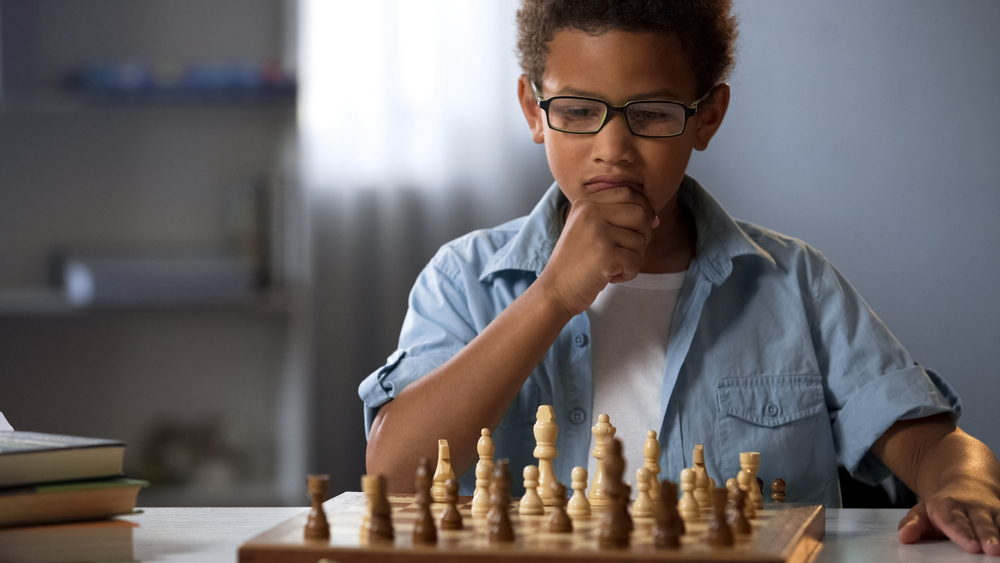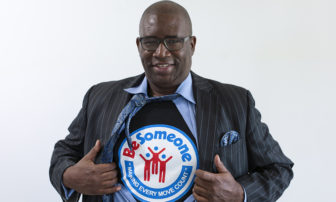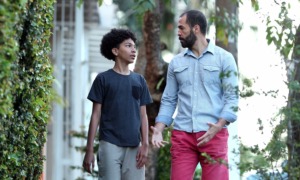
Motortion Films
.
I’m in the business of playing a game with young people. Let me clarify that. I’m in the business of not only playing but teaching a game that is a proven life-changer.
Let me back up a few years to tell you about a young fellow from Birmingham, Ala. This youngster lived in the inner city and by the time he was 16 was following many of the steps associated with that at-risk life. He was the seventh-born of 13 children. He was no stranger to foster homes. He was a follower, not a leader. He looked for the biggest and baddest to teach him what he needed to know to survive. That was his focus, surviving, not achieving.

Orrin C. Hudson
He joined a gang. Petty crime was a way of life, providing an opportunity for some spending money that was never otherwise available. This was all he knew. Ask him about his future and you’d get a blank stare in return. Education? Why, what good was it?
Then one day his life was changed. Maybe that was the day his life was saved. A white teacher in a predominantly African-American school saw potential that no one else saw, especially the young man. He told him he had a new game he wanted him to learn. “OK, show me,” was the short response.
James Edge led him to an empty classroom and pulled out a chess board. “This game can change your life,” he boldly stated. He was right. It did.
That young man was me, Orrin C. Hudson. What does that “C” stand for? Don’t laugh, but I adopted it from the game that now means so much to me. Many people call me “Checkmate” Hudson because I have recited that word many times when facing opponents. But that’s another story for another time.
Yes, I honestly believe chess saved my life. Now I’m using it to change and, in some cases, save other young lives. A game? Really? Yes, but chess is much more than a game. First, let me explain why that is so and then I will tell you how I use it in my mentoring and training program I call “Be Someone.”
Top 2 chess lessons
Chess teaches you the concept of thinking ahead, something young people today have a hard time understanding. Chess teaches you there are consequences for every move you make. Another concept not easily understood or grasped by many preteens and teens. A mistake could mean the difference between winning and losing a match. In the lives of many of the youngsters I teach, a mistake could be a life or death proposition.
There is so much more to be learned from the chess board but these two, thinking ahead and consequences for every move you make, are the dynamic duo of my instruction. It sickens me every time I hear of another young person who has gotten in trouble, lasting trouble, because he or she was never taught the positive energy for good they hold inside and the power of their own minds when properly channeled.
Many of my students are tough characters. They have all the answers they need and don’t want to be shown or shown up by anyone. There is fear of the unknown: “This game is too tough for me,” and — this one really gets under my skin — “Chess is for white folks.” I admit, getting their attention takes some doing but once I do, we’re off to the races, their races.
Games are often used in learning in our U.S. classrooms to teach a multitude of subjects but what I’m teaching through the chess board are life lessons. What is cool about the game is my students don’t even realize the depth of learning because they are so focused on winning and beating … me! And some have. I have trained young African Americans to enter citywide and statewide chess championships. These were kids who scoffed at me and doubted their own potential until revealed by one blessed right move at a time.
I teach kids “they can.” I teach them there is no room for “I can’t.” They begin to understand they have the capacity to understand and excel at a game many adults fear. My training program lasts a week. I wish you could see the change in those few short days. Confidence is written all over their faces when I send them out into the world armed with a new attitude and ability to achieve.
You no doubt are asking, “In just a week, you can achieve this through your chess program?” I wish I could offer a 100 percent guarantee, but I can’t. How about 90 percent? Frankly, I’m not sure but I will tell you this. Every young person who enters my training program and graduates is better for it.
In just 7 days
I have several mantras I use during my training. “Heads up, pants up, never give up!” Another, “Brains before bullets,” and, “Think it out, don’t shoot it out.” In just a week, young people realize what thinking ahead means. They realize that one bad move could be ruinous. My students want to be winners. They want to succeed and be happy, but many have never been taught they own the capacity to both dream and then realize those dreams, their unique and personal dreams. I, and others like me, can help them find the keys to success but they must be the ones who not only find them deep inside themselves but use them to unlock the doors to a life of good.
I don’t discount the value of conventional learning, but I have used an unconventional approach to teach youngsters to think for themselves, to choose the right path as a leader, not the road to ruin chosen for them by the tough dude who tells them what, when and how to do it. My students are known for improving their classroom skills and their capability to stay out of trouble. I like to think of myself as a teachers’ aide.
The bottom line is this: Chess opens the door for me to teach character traits such as love, honesty, respect, responsibility and patience, all essential to success. I am thankful every day of my life James Edge taught me how to play and win at the game of life. Now I consider myself a winner, teaching young people they too can be winners if they but make the right moves.
Orrin C. Hudson is the founder and CEO of Be Someone Inc., a Stone Mountain, Ga.-based nonprofit that uses the game of chess to teach life lessons and skills to young people, many of them considered at risk. He is a former Air Force veteran and Alabama State Highway patrolman, and a nationally recognized speaker and youth mentor.





























